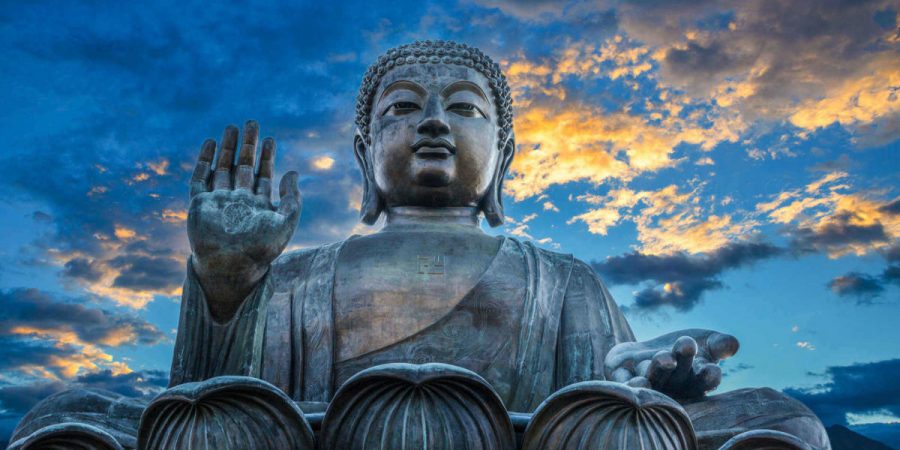In the Words of Siddhartha Gautama: Do We Know What The Buddha Really Said?
March 5, 2021
The Buddha was a fifth-century B.C. spiritual teacher, philosopher, and religious leader. He was born in Nepal, raised in India by his royal family, and enlightened under the Bodhi tree. But is that actually the case?
So much about the life of the Buddha, or “enlightened one,” remains yet unknown. Everything from the year of his birth to his core teachings are, to say the least, hazy.
According to UNESCO, Siddhartha Gautama, the Lord Buddha, was born around 623 B.C.
Assuming that this dating is correct, this causes serious problems for the reliability of the Buddhist writings. According to The British Library, the first time anything was written down about the Buddha was in the first century B.C., a whopping 500 years after he lived.
Now, what’s the issue with this? Isn’t the earliest source for Alexander the Great a similar distance from him at around 296 years?
The difference lies in the fact that when Diodorus, an ancient Greek historian, wrote the Bibliotheca Historica, a massive 40-volume work of history, he had prior sources (which are, unfortunately, lost in the annals of history), not to mention an about 200-year head start on the Buddhists. When the Buddhists wrote down the Gandharan Buddhist Texts, that was the very first time anything had ever been recorded about the Buddha. This only happened when the religion was under threat of destruction, something that had not happened before then (see The British Library).
And why would a 500-year gap be a bad thing?
Before the scriptures were written and codified, the teachings of the Buddha were handed down orally from generation to generation, person to person. But hold on to your “telephone-game” comparison, because oral tradition is far more reliable than one might imagine. According to Gilbert Garraghana, historian at St. Louis University, Oral tradition is reliable for a maximum of 150 years, but Marlene Ciklamini puts it even farther back at 200 years. You’ll notice that these numbers, while very high, still fall very short of the gap between the codification of the canon and the life of the Buddha.
Now, of course, this doesn’t mean that the Buddha never existed, but that the Buddhist scriptures are to be taken with a pile of salt. All that remains of the Buddha in the scriptures may be stories he had told or the general feeling of his teachings. We don’t know. All that continues is the writings of the monks.
Edward Conze, a 20th-century Buddhist scholar, says just this.
“In Christianity, we can distinguish an ‘initial tradition’, embodied in the ‘New Testament’, from a ‘continuing tradition’, which consists of the fathers and doctors of the church, the decisions of councils & synods, and the pronouncements of various hierarchies. Buddhists possess nothing that corresponds to the New Testament.”
He continues, “The available material [the scriptures] would, of course, be very much reduced if we could restrict ourselves to the words of the Buddha himself, leaving aside later accretions,” He says. “Alas, this cannot be done.”
According to him, we cannot restrict ourselves to the words of Buddha, because we don’t know what the Buddha said!
“Much uncertainty still prevails as to the several facts about his life and his doctrine… His birth and death dates are debated – there is no consensus. The words of his teachings recorded in the Pali, Sanskrit, and Chinese canons are surely edited and amended,” says Terry Muck, academic at Northwestern University. The simple truth is that, no, we don’t know what the Buddha said.
But… Does it Matter?
According to a local Buddhist monk at the Wat Promkunaram temple, Chàn, it’s not a great matter or area of concern.
When asked if it would matter if the Buddha wasn’t what the early monks made him out to be, he said, “No, According to him, the Buddha taught to test his teachings, if they work for you. “We follow suggestions.”
